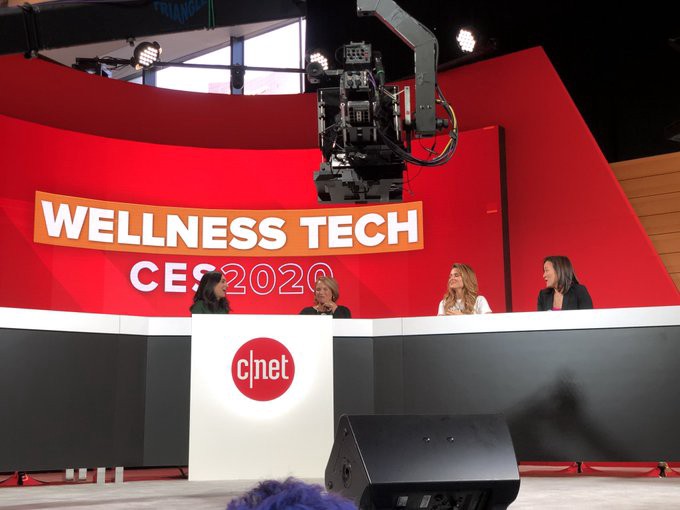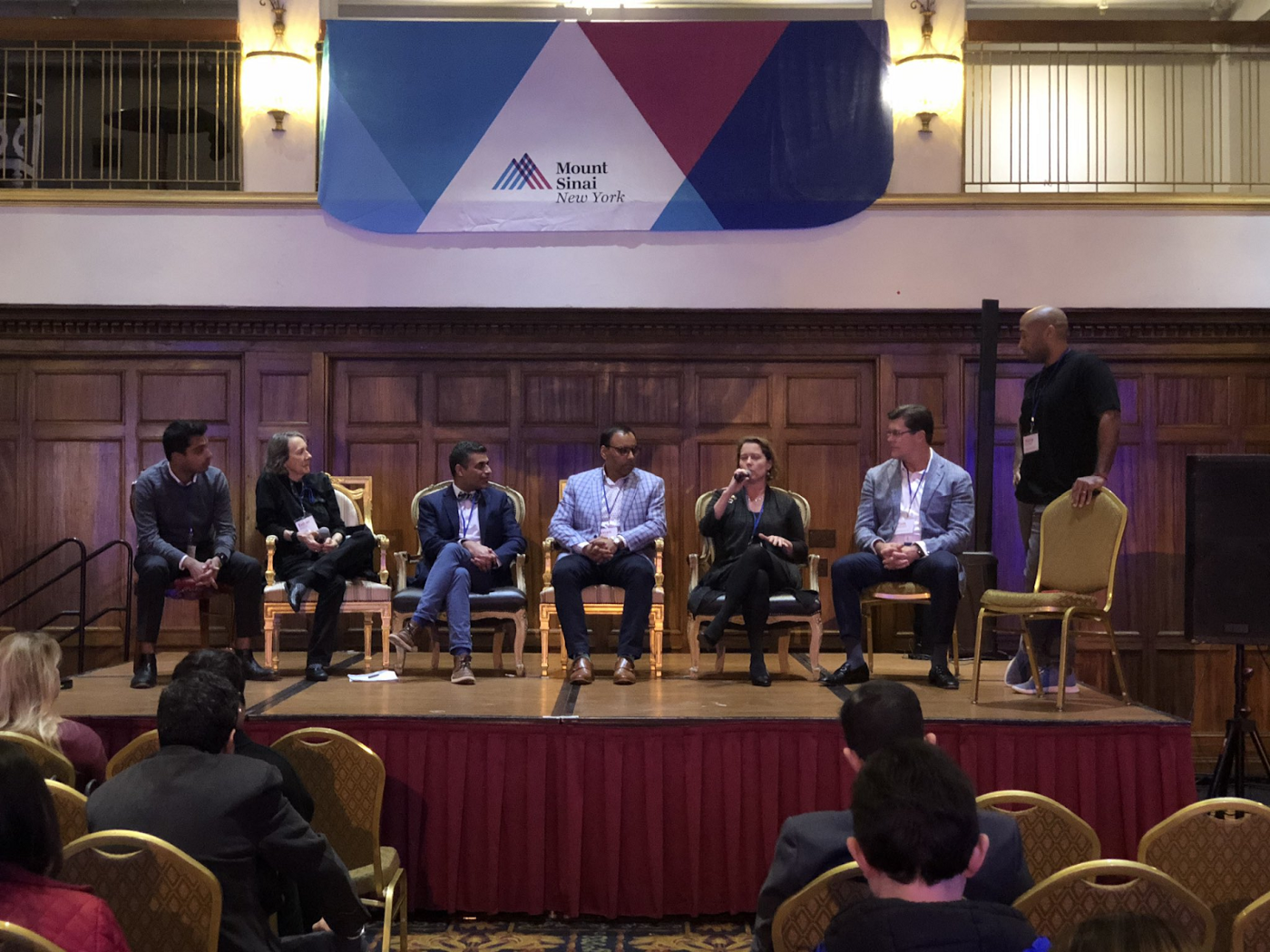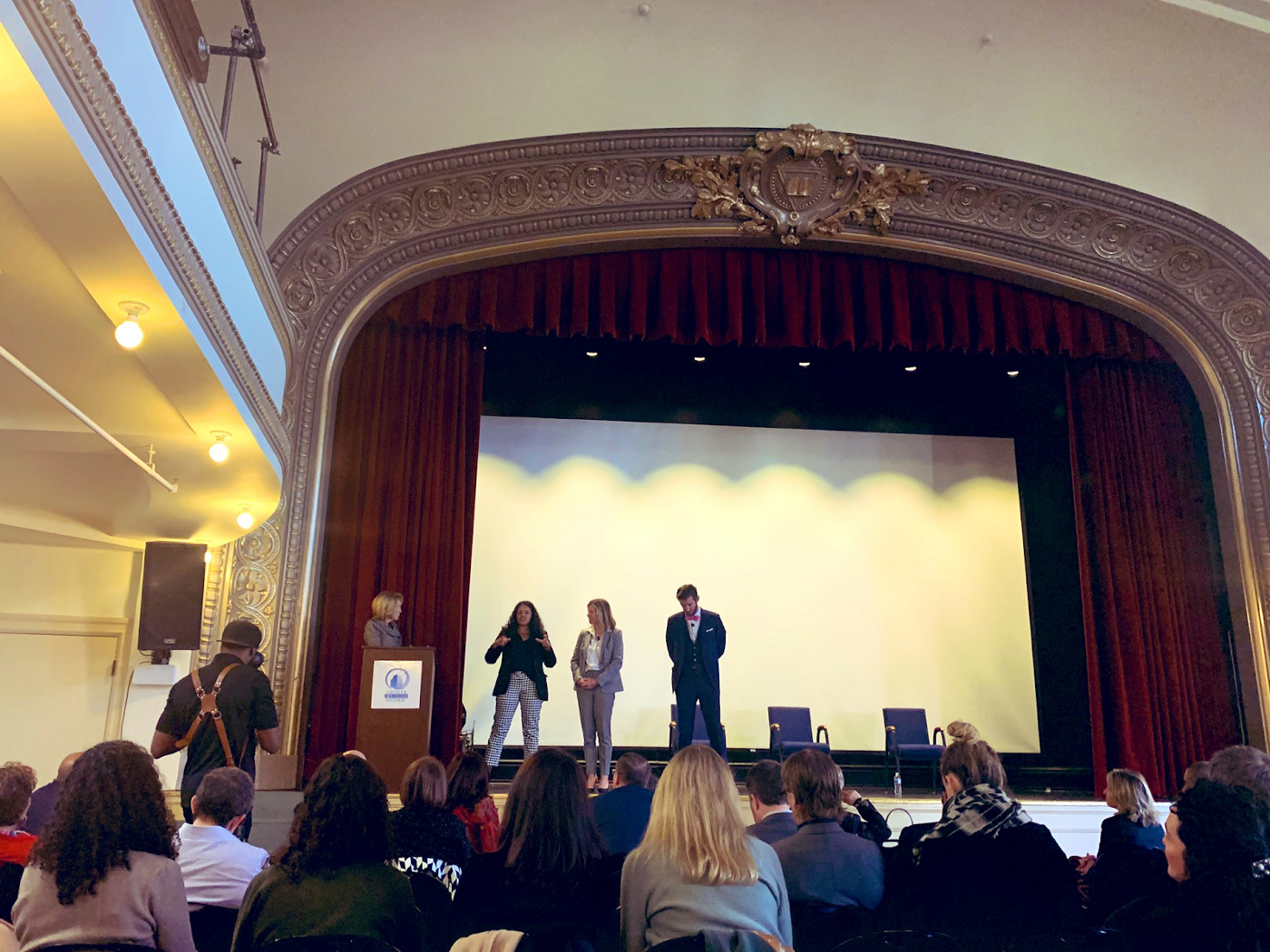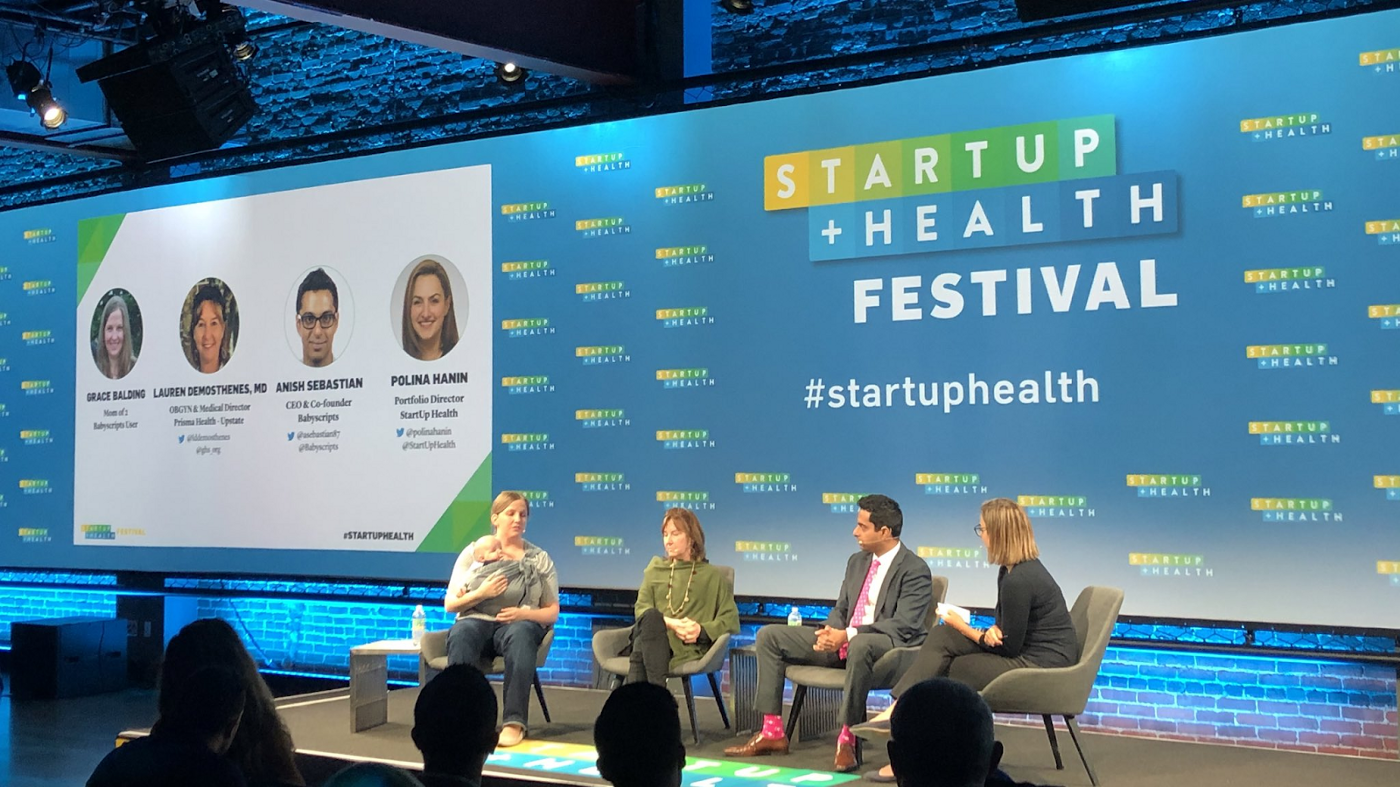The new year started with a bang for Babyscripts. We opened the decade with a new moonshot: eliminate maternal mortality by 2030. It’s a lofty and critical goal, and one that aligns in scope and impact with the direction that digital health is headed in the next decade.
We got a good look at that direction this month, and we like what we’re seeing — fresh back from the CES Convention, JP Morgan Conference Week, and Startup Health Festival, we’re excited to share our insights on innovation and the state of the industry.
Here are a few of our key takeaways:
Digital Health has Cleared the Chasm
From celebrity champions like Katie Couric and Maria Menounos representing healthcare startup Rally Health on stage at CES, to the debate over the definition of digital health that threatened to upstage all other topics at JP Morgan, one thing was clear: digital health is moving full steam ahead to adoption.

What is less clear is how the fast pace of software innovation can be reconciled with the slow cycle of healthcare adoption — the hurdles of clinical validation, data privacy, integration, and scale all combine to check the expectations for widespread adoption against reality.
How to adjust for the disparity? Several possible solutions were raised, including foregoing the traditional scientifically rigorous study for a less time-intensive PDSA model, and commercializing solutions on the strength of non-clinical benefits.
The Consumerization of Healthcare Continues
The vendor booths told the story — the consumerization of healthcare is not slowing down. We were excited to see a continued growth in offerings for the mother and baby space — including a wearable breast pump.
Consumers expect to manage their healthcare the same way they manage everything else in their lives — digitally. Tech companies are meeting those expectations with wearables, AI, and clinical grade tools, and forcing healthcare stakeholders to reevaluate structures of care based on the demand for convenience and accessibility that those digital tools meet.

Co-founder and CEO Anish Sebastian joined other practitioners from across the healthcare ecosystem at the Open Innovation in Healthcare Pop-Up to discuss the challenges that such trends present for healthcare innovators. On one hand, the consumerization of care opens new pathways to reaching disadvantaged populations, both economic and geographic. At the same time, it’s raised the question of how to empower patients without sacrificing the provider/patient relationship.
Tech Access for the Underserved
Disadvantaged populations — and how to reach them — were a major topic of discussion at this year’s conferences. Andy Slavitt, the former head of CMS and now General Partner at TownHall Ventures and Chairman at Healthtech4Medicaid, challenged both innovators, health systems, and policy makers during his keynote on why Medicaid should be a priority in their product roadmaps.

Women’s Healthcare was of a particular focus during the Healthtech4Medicaid breakout showcase at JP Morgan, where Babyscripts shared insights on technology’s potential to aid underserved populations, and how founders need to have an intentional strategy towards transforming their businesses to address real needs, while building products that actually meet them.
Babyscripts in a Leadership Role
This year, we participated in more panels and led more conversations than ever before — a true validation of our position as an established thought leader in the obstetrics space and the larger field of digital health. We spoke on Medicaid transformation, patient engagement, digital scaling and physician workflow — and broke the record for youngest presenter at the Startup Health festival, when Babyscripts’ mom Grace Balding took the stage with her baby, Aidan.

Grace joined Anish Sebastian and Dr. Lauren Demosthenes, a Babyscripts clinical champion, to talk about the impact that Babyscripts and its remote monitoring solution can have on the life of a mother, streamlining the process of monitoring blood pressure and educating patients without losing the connection of a provider relationship.
Grace had a low-risk pregnancy, but not all mothers are as fortunate. Dr. Demosthenes drove home the importance of Babyscripts for closing the gaps in care for high-risk pregnancies, particularly in the postpartum period.
Watch the full conversation here
Other notable mentions on the future of digital health include the emergence of Pharma onto the digital health scene, with companies like Novartis Biome looking to digital health as a way to build out their ecosystem; a shift away from innovation departments to service lines with renewable budgets like Xealth, and the implications this holds for scaling beyond a pilot implementation; and the continued importance of privacy and security.

Submit a comment